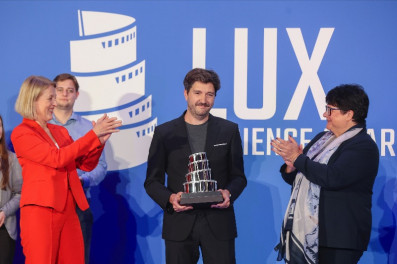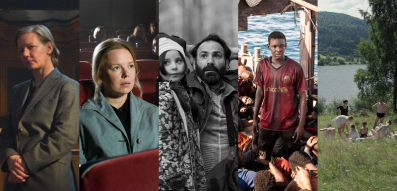Radioactive - a genius reduced to a two-dimensional character
Less memorable adaptation of a biography that chronologically follows the life of a genious
Marie Curie-Sklodovska, a Polish scientist who is studied at the school curriculum in almost every country in the world, is probably the most recognizable figure in popular culture for women in modern science. She pioneered the study of radioactivity and discovered two new elements, she was the first and the only woman to win the Nobel Prize twice and the only person to receive the Nobel Prize in two different fields: physics and chemistry. This gives a clue why her life is perfect for adapting to the big screen, even four times in the history of the film. As impressive as that number is, it is unfortunate that not a single version of her life has left its mark on the annals of film art, and that tradition continues with the latest achievement, Radioactive by Iranian director Marjane Satrapi.
Radioactive follows the life of Marie S. Curie from the beginning of her career as an immigrant in Paris, the difficulties she faces due to that fact and her gender in the scientific field until her death as the first woman - professor at the prestigious Sorbonne. At the very least, the film is a classic, less forgettable adaptation of a biography that chronologically follows all the events according to all the narrative rules and norms.
However, that does not change the fact that this film could bring more depth if it does not underestimate the viewer in his perception. The director has repeatedly tried to explain events from history in a larger context that are not needed at all and do not contribute to the development of the story. They stand out through the script as "tumours" and only contribute to the portrayal of the protagonist in a two-dimensional character that does not call for any emotional response from the viewer.
The acting is particularly affected by the incoherent script and poor directing. Rosamund Pike, one of today's most intriguing and full-fledged actresses portrays Marie Curie as a neurotic and paranoid woman who presents herself cold and calculated in the first half of the film, dismissing all emotional connection to learning accept it as equal. She makes a dramatic turn in her character after marrying Pierre Curie, whom she mourns endlessly after her death.
The director can't seem to find the essence of this complex woman to present her in the right light as a scientist, equal rights activist, sexual being, mother and wife, something that is still a huge problem in the production of modern films in the 21st century... This fact is especially painful because Marjane Satrapi is one of the most awarded directors who with her film Persepolis explores her own autobiographical story of growing up in an oppressive regime where women are second-class citizens.
Truth to be told, Radioactive is a factual representation of the great achievements of a great woman if evaluated as a historical dramatization of important events. However, this does not change the fact that this film has very little artistic value and perhaps no one will remember it in the years to come.
Source: Gledaj.mk / Petra Brankovska














